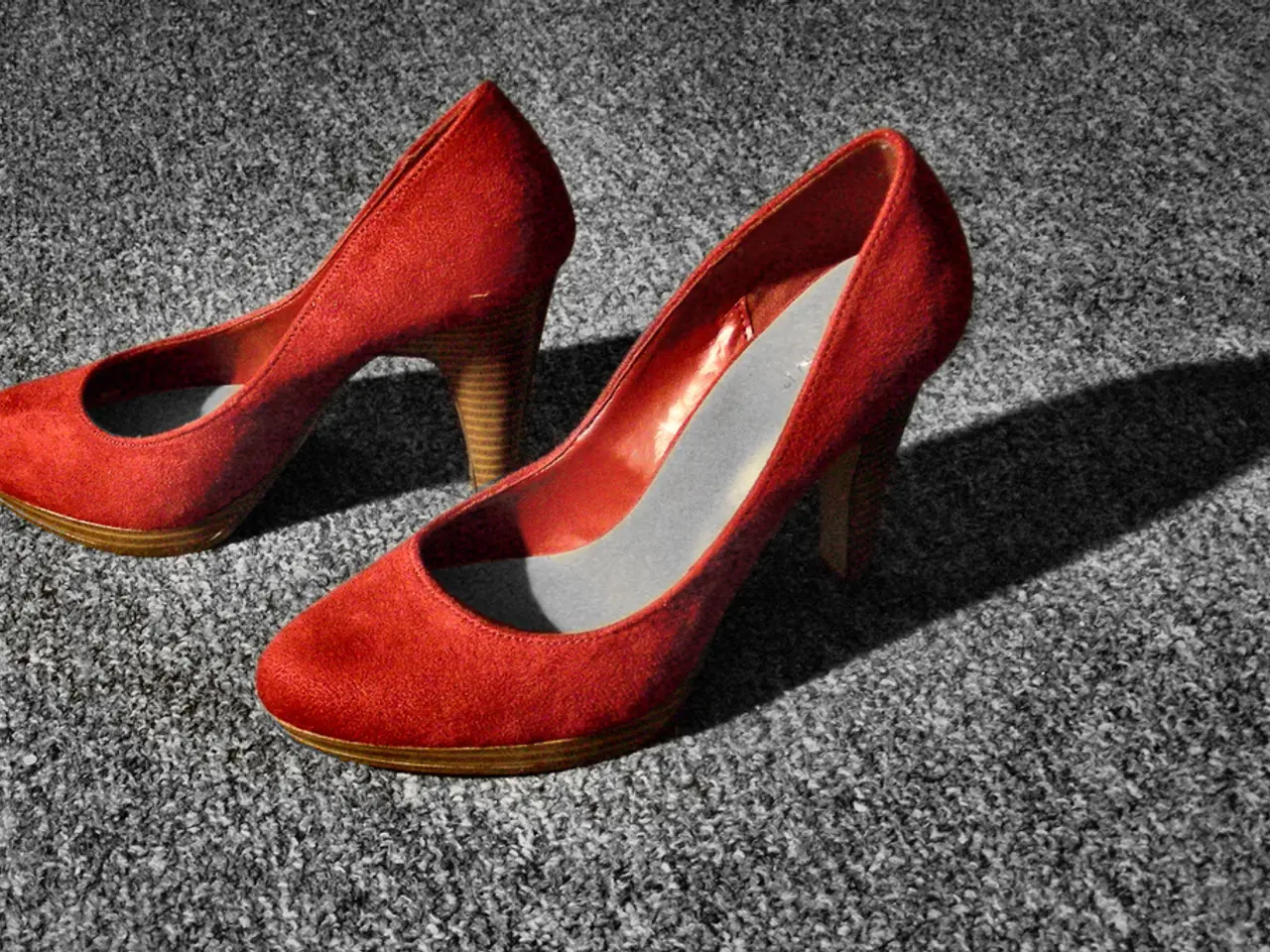The Consequences of Inappropriate Footwear on One's Posture
In today's fast-paced world, the importance of good footwear often goes unnoticed. However, wearing the right shoes can significantly impact our overall health, particularly our posture and the wellbeing of our joints.
Wearing shoes with adequate cushioning in the heel and forefoot helps absorb shock, reducing the impact on joints and the spine, promoting comfort, and minimizing strain on the body. Shoes that offer proper arch support are especially beneficial, as they can reduce the risk of overpronation and other postural issues.
Choosing shoes that fit well is paramount. Properly fitted shoes should allow some space in the toe box while providing support around the arch and heel. It's essential to try shoes on in the late afternoon or evening when your feet are slightly swollen, as this will give you a better idea of the fit throughout the day.
The most well-known shoe brands that provide adequate support and a suitable footbed function to optimize back health and posture include Birkenstock, Asics, New Balance, Brooks, and Ecco. However, it's crucial to remember that everyone's feet are unique, and what works for one person may not work for another. Therefore, consulting a podiatrist or a footwear specialist can help ensure you're selecting the right pair for your needs.
High heels, while fashionable, can have adverse effects on our bodies. They shift the body's weight forward, putting extra pressure on the toes, knees, and lower back, causing unnatural spine curvature and lower back pain. Flat shoes without support can lead to foot strain, affecting the arch and the balls of the feet, potentially causing conditions like plantar fasciitis or shin splints.
It's not just adults who are at risk; children are also at risk, as their feet are still developing, and wearing shoes that don't support natural growth or restrict movement can interfere with their development, leading to long-term posture problems.
Shoes designed for specific activities, such as running or hiking, have unique features that provide proper support and alignment for those activities. For instance, running shoes often have more cushioning and flexibility to absorb the impact of each step, while hiking shoes offer additional ankle support and traction for rough terrains.
Regularly checking the condition of your shoes and replacing them when needed helps maintain proper posture and foot health. If your shoes lack arch support, you can consider adding orthotic insoles for additional comfort and alignment.
In conclusion, wearing the right shoes can help maintain the body's natural posture, reduce the risk of muscle imbalances and joint problems, and encourage better alignment. By choosing shoes that are appropriate for the activity we're engaging in and consulting a podiatrist or a footwear specialist, we can ensure we're taking care of our feet and, in turn, our overall health.
Read also:
- Peptide YY (PYY): Exploring its Role in Appetite Suppression, Intestinal Health, and Cognitive Links
- Toddler Health: Rotavirus Signs, Origins, and Potential Complications
- Digestive issues and heart discomfort: Root causes and associated health conditions
- House Infernos: Deadly Hazards Surpassing the Flames








